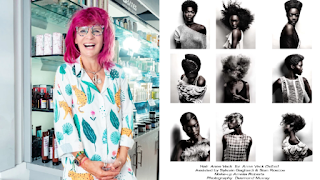An excerpt from Far Out Magazine -
The whitewashing of Black music: Five singles made popular by white artists
By Mick McStarkey
 |
| Big Mama Thornton was a pioneering musician. (Credit: Alamy) |
This week marks the anniversary of the date that Big Mama Thornton first recorded the iconic single ‘Hound Dog’ in 1952. The song is widely regarded as one of the most iconic tracks in rock and roll history. Since Thornton’s original was put to wax, the song has been covered well over 250 times. In this sense, the blues staple can be considered to be in the same category as what ‘Greensleeves’ is to folk: a key standard, setting out its defining features.
The chances are that many of you will not have even heard of Big Mama Thornton, or the fact that she was the first artist to perform the now-iconic track. Written by the duo Jerry Leiber and Mike Stoller for Thornton, it is quite telling that Elvis Presley was the one who popularised the song in 1956. His version is often thought of as being the original, which is not the case.
In 1999, Rick Kennedy and Randy MacNutt perfectly captured the impact Thornton’s original had on music. They argued that it helped to “spur the evolution of Black R&B into rock music”. The transformative effect of this cross-pollination cannot be underestimated.
The irony of the song is that when Thornton initially sang it, she did so in the form of a ballad. However, Leiber and Stoller believed that the song should be more up-tempo, as they had forged it specifically “to suit her personality—brusque and badass”. Thus, Leiber sang it, accompanied by Stoller on the piano, conveying to Thornton how they thought it should be performed.
Luckily Thornton agreed, and the song the trio recorded the number became one of the most important hits ever captured. The track is so influential that Maureen Mahon, a professor of music at New York University, claimed that the original is “an important (part of the) beginning of rock and roll, especially in its use of the guitar as the key instrument”. The song would reach number one on the R&B chart and be popularised in the appropriate musical community. However, the song remained relatively unknown in the mainstream until Elvis Presley put his own spin on it.
What made Elvis’ version so popular and Thornton’s not? After all, one would wager that Thornton’s is the best version out of all of them, a swaggering, sexualised number that was just as groundbreaking lyrically as it was musically. So why then does the ‘King of Rock and Roll’ still take all the plaudits?
Unfortunately, the reasons are all too familiar. Firstly, we need to cast our mind’s back to the era, 1950s America. Thornton, being the larger-than-life Black woman that she was, was clearly up against it in her fight for success, the measure of which was relevant to the time. Thornton’s original preceded the desegregation of schools by a year, and Martin Luther King, Rosa Parks and Malcolm X wouldn’t truly make their voices of civil rights protest heard until the ’60s.
https://faroutmagazine.co.uk/the-whitewashing-of-black-music-five-singles-made-popular-by-white-artists/
























